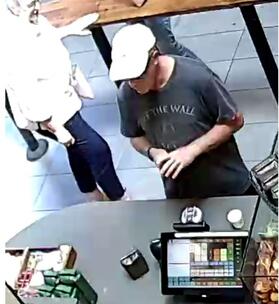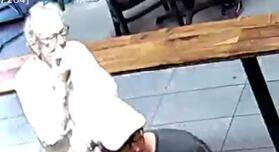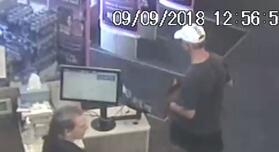Last Sunday, I attended Session I of Let’s Talk, presented by the Piedmont Unified School District, the City of Piedmont, and the Piedmont Appreciating Diversity Committee (PADC). On this specific weekend of August 25th and 26th, there were four Let’s Talk Sessions, and, to my knowledge, Let’s Talk! occurs on four separate weekends a year.
The main goal of the program is to “build a more inclusive Piedmont through deliberative dialogue”. To do this Sara Wicht, the leader from the Southern Poverty Law Center, informed us of the goals for our session: reflecting on how our own identities influence us; engaging in conversations exploring diversity; and learning the tools for quality conversations.
The central issue that Lets Talk! covers is diversity and how Piedmont, a city that currently lacks diversity, can grow to be more inclusive and, hopefully, more diverse.
In order to understand and then embrace diversity, we first went over the main types: economic and racial.
We also learned the four main domains- identity, diversity, justice, and action, and how all of these domains must fit together. Going along with the theme of identity, we engaged in an activity where everyone wrote down eight different traits about themselves (simple things like gender, religion, and race) and then crossed out the traits one-by-one in the order of least significant to most important until each person was left with one. We then discussed how it was only easy to cross out non-threatened categories that you shared with the majority, how nobody’s identity could be defined with a single relatively generic trait, and how this most important trait may shift depending on the company you share.
I thought it was interesting how nearly all of the traits were things that you were born into and could not self-identify with. It led me to question my group: what actually does shape who you are and what is actually most important to you?
I enjoyed the format of the seminar of small table groups (a mixture of strangers and fellow students) to engage in specific conversations with.
Then, after exchanging views, opinions, and experiences with your table, Sara opened it up to the whole room to share main concepts and takeaways from each group.
At my table, Dave McMartry’s story stood out to me. Dave shared with me that he recently moved to Piedmont and he does not intend to stay because of its lack of diversity. He fears that it will not be a suitable environment to raise his multi-racial children. By coming to Let’s Talk!, Dave hoped to become a better parent, develop a better understanding of what living in Piedmont is like for people of color, and see for himself if this community was taking the appropriate steps to becoming more inclusive.
While most of my table, including Dave, was very understanding and accepting of whatever I said, there was one person that seemed to target me when he spoke. I did not say anything disrespectful or offensive towards him (or anyone for that matter) and I am fairly certain that the source of his targeting was me being white. When he spoke he would say things like “you people do not understand” and point and stare directly at me.
This made me quiet down and keep to myself more, not wanting to upset him (even though I do not know what he was upset about in the first place). I felt very supported by my table group other than this man. After he left, I opened back up, sharing experiences, posing questions, and contributing ideas and opinions.
In the big group though, with everyone, at times the conversation could be slightly hostile, given people with opposing views. One particularly controversial debate regarded the scenario of asking an Asian child to tutor the rest of the class. This played on the stereotype that Asian kids are “smarter” and “better at math”. With it, we discussed implicit bias and stereotypes, acknowledging how negative their effects can be.
While most of the other students and I were on the side that if the Asian child was actually the smartest kid and was willing to help the rest of the class, then there is no reason for him not to be a tutor. Much of the Piedmont Appreciating Diversity Committee disagreed. They specified that the teacher should go to the next smartest and most willing kid to do it, avoiding the damaging stereotype towards Asians.
I shared how I thought that, in a way, this would be a step too far, going so far around the issue that it exaggerates it. While much of the community did agree with me, one woman from PADC was extremely opposed.





